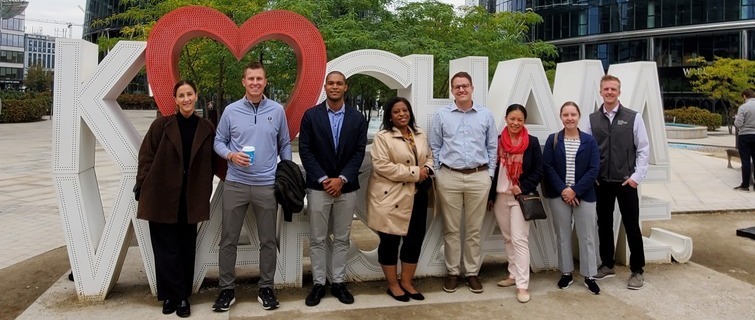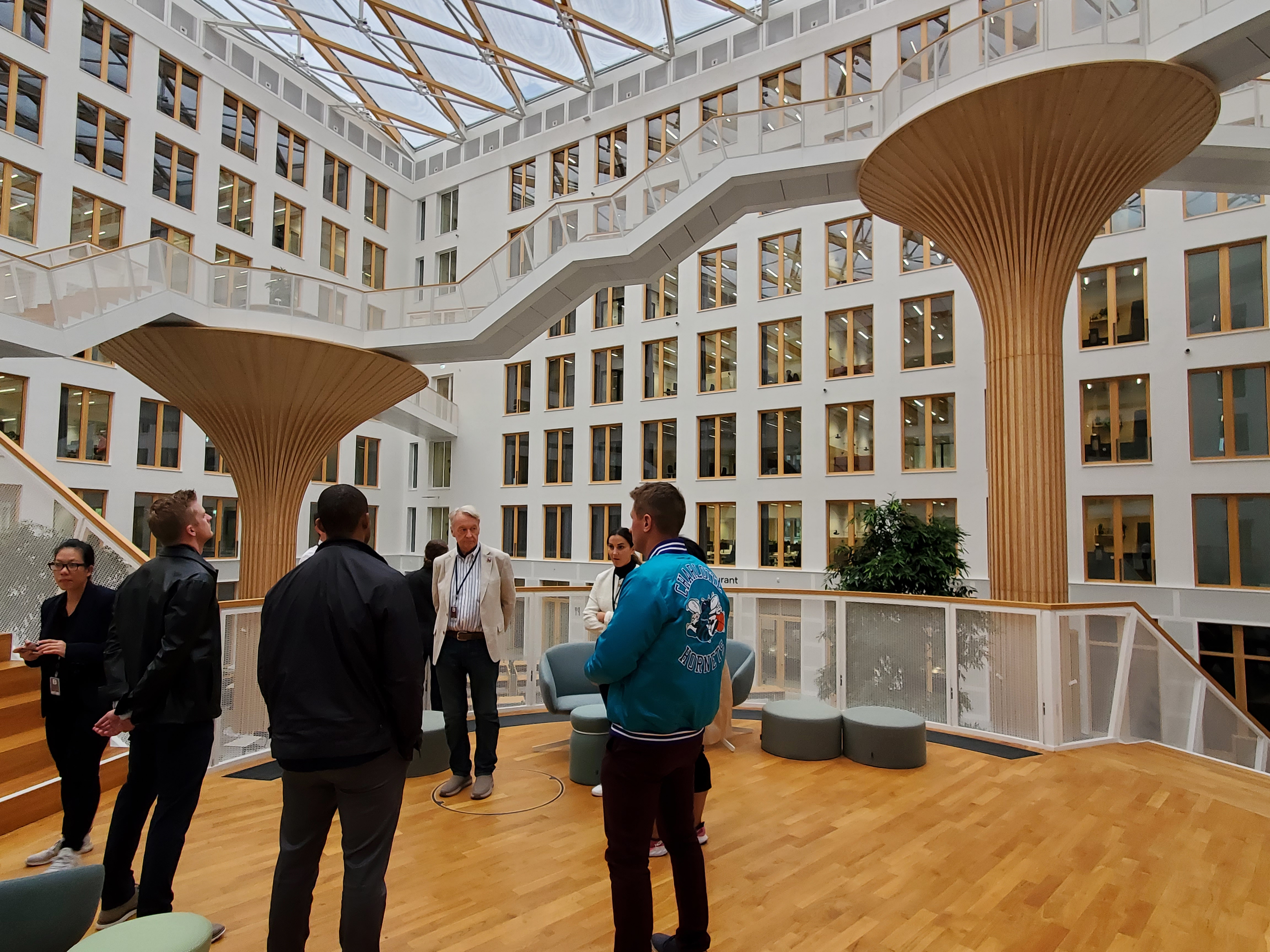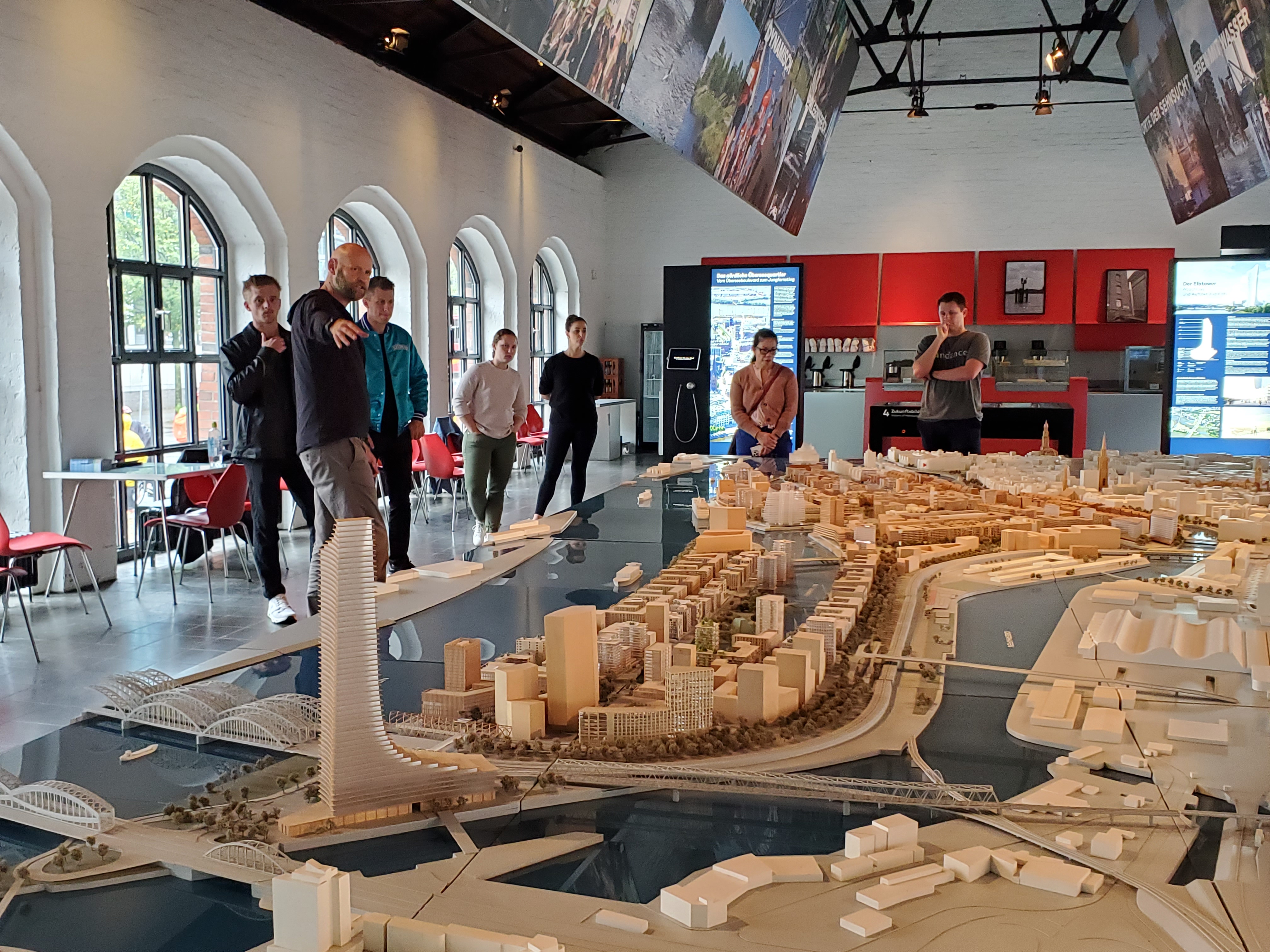
“Go see for yourself.” From their first case study in our initial Ethics course to their final Capstone projects, I have always encouraged students to see any site in person to understand how it works and relates to its surrounding community. Real estate development requires extensive interaction with a multitude of stakeholders. This process only gets more complex when working overseas. Having learned so much from working more than a decade in Central Europe, my colleague, Dietmar Georg, and I are glad to share this experience with our students.
Each October, students at the Georgetown Master’s in Real Estate Program (MPRE) join more than 40,000 fellow real estate professionals in Munich at EXPO REAL, the largest real estate conference in the world. (By way of comparison, ICSC Las Vegas attracted 34,000 attendees in 2023.) Traditionally, EXPO REAL begins the day after Oktoberfest and offers a wide range of panel discussions on cutting-edge topics as well as opportunities to arrange meetings at more than 1,000 exhibitor booths. As part of their 3-credit course on “Exploring Opportunities in Europe,” MPRE students spend a week researching individual topics, attending the conference, and visiting current projects in Hamburg, Berlin, and Warsaw.
The pulse of Europe remains vibrant in Warsaw, which has welcomed hundreds of thousands of Ukrainian migrants in the wake of Russia’s invasion in 2022. This migration has added fuel to Warsaw’s continued residential development boom. Within the office sector, largely dormant in the U.S., Warsaw in 2024 will celebrate the opening of The Bridge in the emerging Wola District as well as Varso Tower in the traditional city center. Designed by Foster + Partners and developed by HB Reavis, Varso Tower is now the tallest building in the European Union and also features an interior forest within its main lobby. MPRE students were fortunate to tour both of these sites during our visit to Warsaw.
The topic of ESG (Environment Social Governance) dominated many discussions at EXPO REAL, but a clear struggle to reconcile lofty goals with practical initiatives remains ongoing. At one panel we attended, presenters lamented the lack of commitment by U.S. officials to agree upon net zero carbon targets, while at the same time admitting that any confirmation of carbon reduction from improved operations in Europe still depends upon collecting data that occupants are not required to share. Thus, new technology to facilitate data collection without interfering with tenants’ privacy rights remains another related hot topic. The push to measure and reduce carbon from operations via development of new buildings does not measure the “embedded carbon” created by the construction itself. Nevertheless, European developers continue to experiment with more sustainable building designs. In 2022, one of our more interesting discoveries was to hear from a firm developing low-carbon concrete. In 2023, we toured the hybrid wood-concrete EDGE Suedkreuz project in Berlin that is now 100 percent leased to Vattenfall.

No visit to Berlin would be complete without our annual bicycle tour, which has proven to offer the most efficient way to move about the city—even better than using its extensive subway and train system. In line with both ESG and efficiency, we relied upon trains to travel from Munich to Berlin as well as a day trip to and from Hamburg to see HafenCity, the largest inner-city redevelopment project in all of Europe. For comparison, imagine the scale of Baltimore’s Inner Harbor, multiplied by two.

The diversity of site visits matched the topics researched by students and frequently highlighted differences between the U.S. and European attitudes and environments as well as the tension between affordability and stricter building standards to meet environmental goals. Topics included variations on affordable (“social”) housing, potential gains from modular construction, percent of time spent in the office (much higher in Europe), as well as the emergence of “stranded assets” which are assets essentially deemed to be worthless for their lack of compliance with EU sustainability goals. In some EU countries, including Austria, Belgium, Denmark, and France, commercial buildings that score in the lowest F and G categories [will be/are] banned from sale or rent.
In the UK, residential homes cannot be rented out if they are rated F or G and the government there has proposed that all residential homes must reach level C by 2028. Upgrades to existing properties require major investment from landlords that inevitably require higher rents, further highlighting tension between achieving climate goals and meeting social goals for affordable housing. For buildings where increases in rent are strictly controlled, landlords may question whether such investment in these properties can be justified.
“That would be too big a leap for our markets to handle,” said Zach Harris, one of the students, who works as a lender for multifamily developments in middle market cities in the western U.S. Zach was surprised by the level of fervor for ESG at the Expo Real conference and so decided to focus his research on this topic. “Between the site visits and meetings, the trip provides insights you just wouldn’t get being here on your own,” he said.
In short, we see a lot, we meet a lot of people, we learn a lot, we have a lot of fun, and we are looking forward to going back in the Fall 2024 semester.

